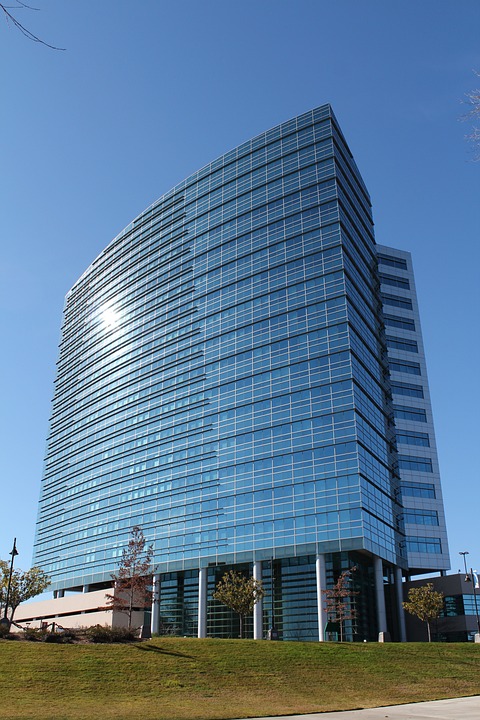Introduction
In recent years, artificial intelligence (AI) has gained significant momentum across various industries, transforming the way we live and work. From self-driving cars to personalized recommendations on streaming services, AI has become an integral part of our daily lives. One of the most pressing questions surrounding AI is its impact on the future of work. Will AI replace human workers, or will it create new opportunities for collaboration and innovation?
The Rise of AI in the Workplace
AI technologies such as machine learning, natural language processing, and robotics have been rapidly adopted by businesses to automate repetitive tasks, enhance productivity, and drive business insights. According to a report by PwC, AI is projected to contribute up to $15.7 trillion to the global economy by 2030. This unprecedented growth in AI adoption is reshaping the workplace and redefining the skills needed for 21st-century jobs.
Automation of Repetitive Tasks
One of the primary benefits of AI in the workplace is its ability to automate repetitive tasks, freeing up employees to focus on higher-value activities. For example, chatbots are now used by customer service teams to handle routine inquiries, allowing human agents to handle complex customer issues. This not only improves efficiency but also enhances the overall customer experience.
Data-driven Decision Making
AI algorithms can analyze vast amounts of data in real-time, providing valuable insights to business leaders for strategic decision-making. For instance, AI-powered analytics tools can predict customer behavior, optimize supply chain operations, and identify potential risks. This data-driven approach is transforming businesses and enabling them to stay ahead of the competition.
The Impact on Job Roles and Skills
As AI continues to evolve, the nature of work is also evolving, leading to the creation of new job roles and the transformation of existing ones. Some jobs may become obsolete, while others may require new skills and competencies to thrive in the digital age.
Emergence of New Job Roles
- Data Scientist: Data scientists are in high demand as companies seek to harness the power of big data to drive business growth.
- AI Ethicist: With the ethical implications of AI becoming more prominent, AI ethicists ensure that AI technologies are developed and deployed responsibly.
- Robotics Engineer: Robotics engineers design, build, and maintain robotic systems to streamline manufacturing processes and improve efficiency.
Reskilling and Upskilling
As AI automates routine tasks, employees will need to acquire new skills to adapt to the changing workplace dynamics. Companies are investing in reskilling and upskilling programs to equip their workforce with the necessary competencies to succeed in the age of AI. Skills such as critical thinking, creativity, emotional intelligence, and adaptability are becoming increasingly valuable in the digital economy.
Challenges and Opportunities
While AI presents numerous opportunities for businesses and employees, it also poses challenges that need to be addressed to ensure a smooth transition to the future of work.
Job Displacement and Redistribution
One of the most significant concerns surrounding AI is the potential job displacement caused by automation. According to a report by the World Economic Forum, AI is expected to displace 75 million jobs by 2022 but create 133 million new ones. The key challenge lies in redistributing the workforce and ensuring that displaced workers are equipped with the necessary skills to secure new employment.
Ethical and Privacy Concerns
As AI becomes more integrated into our daily lives, ethical considerations around privacy, bias, and accountability become critical. Companies must establish robust ethical guidelines and frameworks to ensure that AI technologies are developed and deployed ethically and responsibly.
The Future of Work: Collaboration Between Humans and AI
As we look towards the future of work, it is essential to recognize that AI is not a replacement for human workers but a complement to human intelligence. The most successful organizations will be those that foster collaboration between humans and AI, leveraging the strengths of each to drive innovation and growth.
Augmented Intelligence
Augmented intelligence, a concept proposed by Gartner, refers to the collaboration between humans and AI to enhance cognitive capabilities and decision-making. By combining the analytical power of AI with human creativity and intuition, organizations can unlock new possibilities and drive sustainable growth.
Skills for the Future
As the workforce continues to evolve, individuals must adapt by acquiring new skills that are in demand in the age of AI. Skills such as critical thinking, emotional intelligence, adaptability, and digital literacy will be essential for succeeding in a technology-driven world.
Conclusion
In conclusion, the impact of artificial intelligence on the future of work is profound and far-reaching. While AI automation may disrupt certain job roles, it also presents new opportunities for collaboration, innovation, and growth. By embracing the potential of AI and investing in skills development, individuals and organizations can navigate the changing landscape of work and thrive in the digital age.
